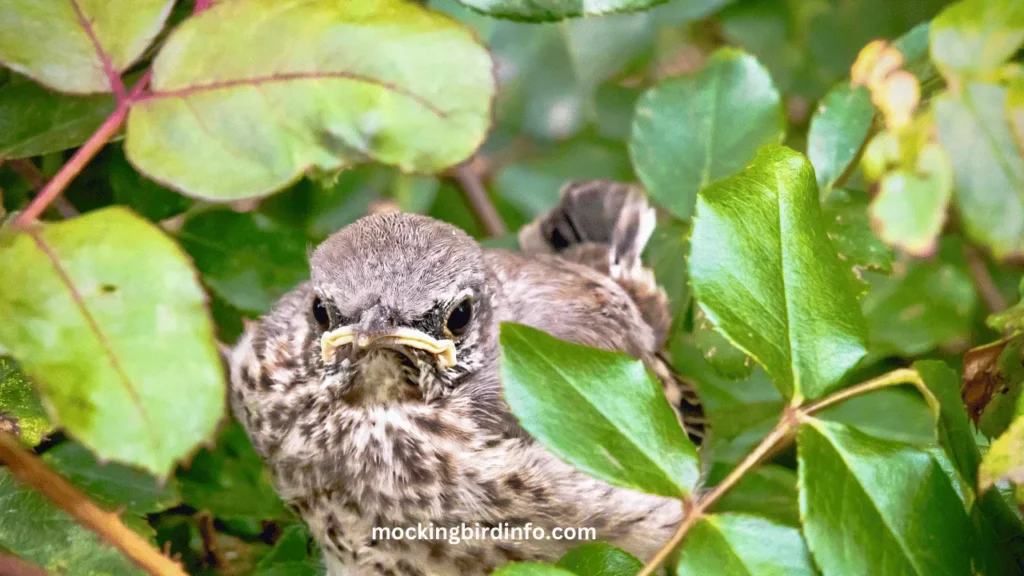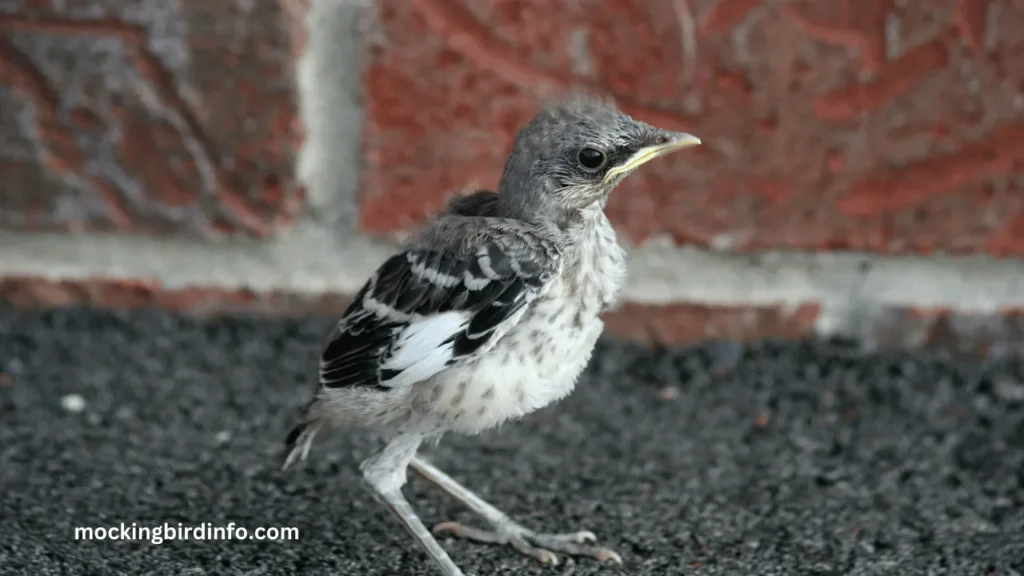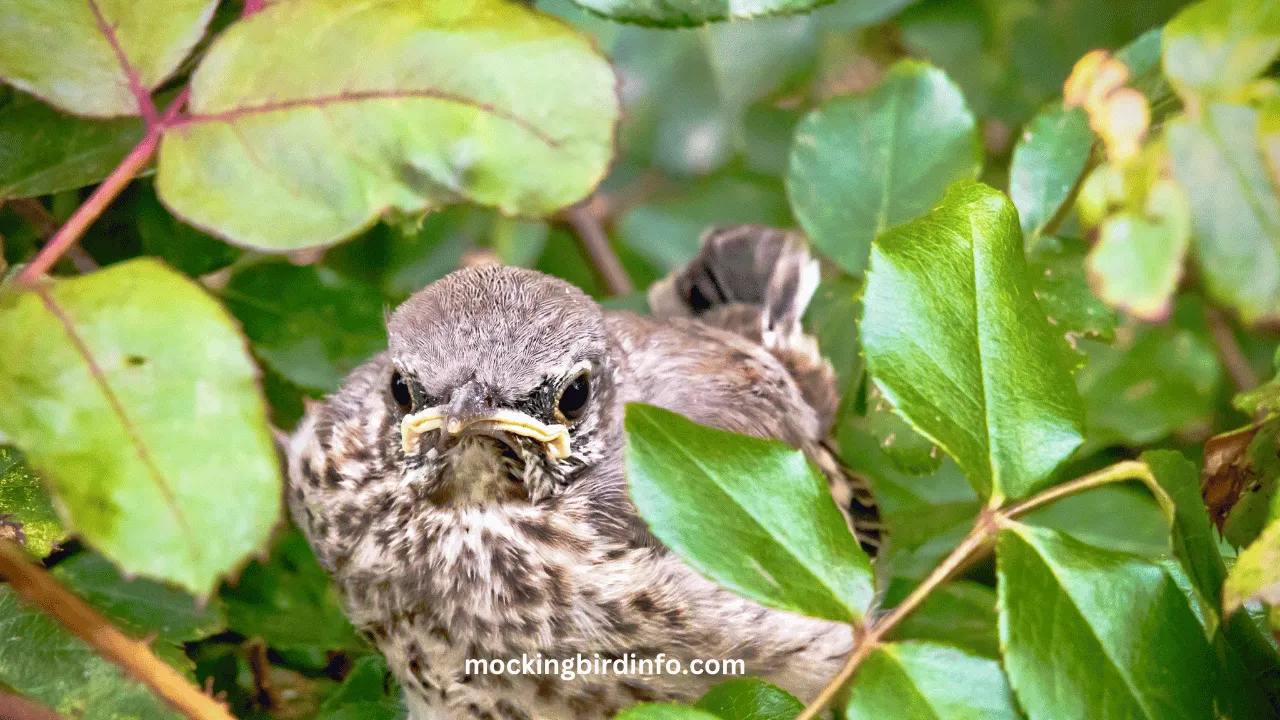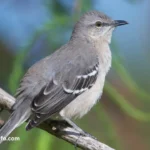The sight of a mockingbird fiercely guarding its nest or tirelessly feeding its young is a testament to its dedication as a parent. These birds are known for their strong territorial instincts and incredible commitment to their offspring.
But what happens when their nest is threatened? Do mockingbirds move their babies to a safer location, or do they stay put and defend their ground?
This intriguing question sheds light on the adaptability and resilience of these remarkable birds.
Mockingbirds are highly skilled at selecting safe nesting sites to ensure the survival of their young. However, even the most secure locations can become vulnerable to predators, harsh weather, or human interference.
Under such circumstances, these devoted parents might consider relocating their nestlings, but this decision is far from simple. Moving babies is a risky and rare event that requires careful judgment by the parents.
In this article, we’ll dive into the fascinating world of mockingbird parenting. We’ll explore how they choose their nesting sites, the risks associated with moving their young, the specific conditions that might prompt relocation, and how they continue to care for their offspring afterward.
By the end, you’ll gain a deeper appreciation for the challenges and decisions that mockingbirds face while raising their families.

Contents
- 1 Nest Site Selection
- 2 Risks Associated with Moving Nestlings
- 3 Conditions for Nest Relocation
- 4 Parental Care After Relocation
- 5 The Remarkable Adaptability of Mockingbirds
- 6 Conclusion
- 7 FAQs
- 7.1 1. Do mockingbirds move their babies to a new nest?
- 7.2 2. Why would a mockingbird relocate its nestlings?
- 7.3 3. Is it common for mockingbirds to move their babies?
- 7.4 4. How do mockingbirds protect their young?
- 7.5 5. Can human activity force mockingbirds to move their babies?
- 7.6 6. What risks are involved in moving nestlings?
Nest Site Selection
Mockingbirds invest significant time and energy in selecting a safe and strategic nest site. They look for locations that provide natural camouflage and protection from predators like snakes, cats, or larger birds.
Dense shrubs, tall trees, or thorny bushes are common choices for nesting. An ideal nest location is elevated, concealed, and close to abundant food sources.
This setup minimizes the risk of predation and ensures parents can easily find food to feed their chicks. Locations shielded from extreme weather, such as heavy rain or intense sunlight, are also preferred.
This careful selection process reflects the mockingbirds’ high parental investment. From gathering nesting materials to defending the area against intruders, these birds go to great lengths to create a safe environment for their young.
Risks Associated with Moving Nestlings
Relocating nestlings is fraught with risks, which is why mockingbirds rarely attempt it. Injury is a significant concern, as young birds are fragile and can easily be harmed during the process.
Falls from heights or exposure to harsh conditions can have fatal consequences. Moving nestlings can also disrupt their development and growth.
Being uprooted from a familiar environment can increase stress, weaken their immune systems, and leave them vulnerable to predators. Additionally, exposure to new environments might bring unforeseen challenges.
Parental care might also suffer after relocation. Parents could face difficulties in locating and protecting their young if they are spread across an unfamiliar area. The move can create confusion, reducing the efficiency of feeding and care.

Conditions for Nest Relocation
Mockingbirds are unlikely to move their nestlings unless absolutely necessary. One common reason is a threat from predators. If a predator, such as a snake or a cat, discovers the nest, parents may attempt to relocate their young to prevent harm.
Habitat disturbance caused by human activities, such as tree trimming, landscaping, or construction, can also force mockingbirds to abandon or relocate their nests.
Noise and physical disruption often make a once-safe area unsuitable for raising chicks. Extreme weather conditions, such as storms or heavy winds, may damage nests and necessitate relocation.
In such cases, the parents’ priority shifts to finding a safer spot where their nestlings can continue to develop.
Parental Care After Relocation
Mockingbird parents remain deeply committed to their young, even after relocation. They continue to provide food and protection tirelessly, ensuring their nestlings’ needs are met despite the disruption.
This demonstrates their resilience and dedication as parents. Parents often monitor their nestlings from a distance, watching for signs of danger and intervening when necessary.
This vigilant monitoring ensures that their young are safe in the new environment and adapting well to the change. Relocated nestlings must also adjust to their new surroundings.
They begin to learn survival skills, such as foraging for food and recognizing predators, under their parents’ watchful guidance. This period is critical for their development and eventual independence.
The Remarkable Adaptability of Mockingbirds
Mockingbirds’ ability to adapt to challenges is a testament to their survival instincts and intelligence. While moving their young is rare, it showcases their willingness to take risks to protect their offspring.
These birds balance fierce territorial defense with nurturing care, making them one of the most resourceful avian species.
Observing these behaviors reminds us of the delicate balance of nature. Protecting mockingbirds and their nesting sites ensures these incredible creatures continue to thrive in our shared ecosystems.
Conclusion
Mockingbirds are exceptional parents who rarely move their babies due to the significant risks involved. Instead, they rely on carefully chosen nest sites and fierce territorial behavior to keep their young safe.
However, under extreme conditions, such as predator threats or habitat disturbances, these birds might take the bold step of relocating their nestlings.
Understanding the challenges faced by mockingbirds highlights the importance of protecting their nesting sites. Simple actions, such as avoiding unnecessary disturbances near nests and preserving natural habitats, can significantly impact their survival.
By fostering coexistence with mockingbirds, we not only protect these dedicated parents but also contribute to the broader health of our ecosystems. Their perseverance and adaptability are reminders of the intricate and awe-inspiring dynamics of the natural world.
FAQs
1. Do mockingbirds move their babies to a new nest?
Mockingbirds typically do not move their babies but may do so if the nest is under severe threat from predators or environmental factors.
2. Why would a mockingbird relocate its nestlings?
A mockingbird may relocate its nestlings due to predator threats, habitat disturbances, or severe weather conditions.
3. Is it common for mockingbirds to move their babies?
No, it is rare for mockingbirds to move their babies as the process is risky and disruptive.
4. How do mockingbirds protect their young?
Mockingbirds use aggressive territorial behavior and strategic nest placement to protect their offspring.
5. Can human activity force mockingbirds to move their babies?
Yes, activities like construction, tree trimming, or landscaping near nesting sites can force mockingbirds to relocate their young.
6. What risks are involved in moving nestlings?
Relocation can lead to injuries, disrupted development, and reduced parental care, making it a last resort for mockingbirds.








